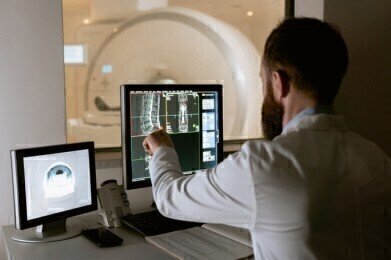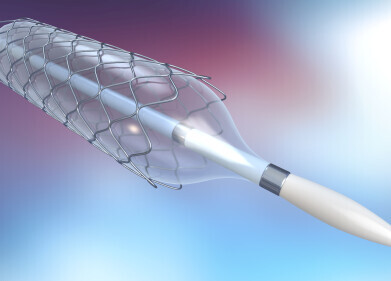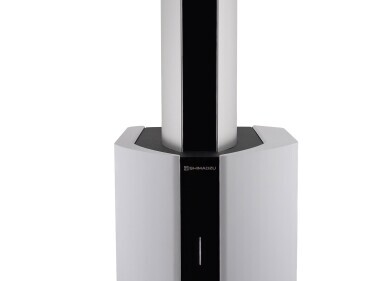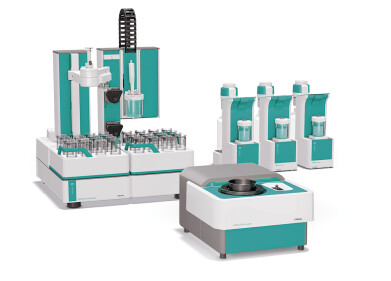Mass Spectrometry & Spectroscopy
What's the Difference Between NMR and MRI?
Oct 21 2021
NMR and MRI may sound similar, but these two initialisms describe very different things. Below, we define both scientific abbreviations and explore the differences between the two, as well as the similarities they share.
Defining NMR
NMR is the initialism used to describe nuclear magnetic resonance, a technique that sees nuclei produce electromagnetic signals when exposed to an external magnetic field and excited with radio-frequency photons. The nuclei then re-emit these photons, with the characteristic frequency used to reveal the unique structure of the molecule.
The spectroscopy technique was developed by chemists to identify unknown compounds, though it’s now used for a wide range of applications across a myriad of scientific fields. For example, modern benchtop NMR instruments are used to measure molecular self-diffusion using pulsed field gradient technology.
Applications for NMR
As well as applications such as chemical analysis, high-performance instruments like the X-Pulse NMR spectrometer are being used to analyse meat samples and identify the species of origin. Developed in collaboration Quadram Institute Bioscience in Norwich, the X-Pulse method analyses the high resolution spectrum of fat or oil extracted from a meat sample and uses data to profile fatty acid composition.
“Different meat species exhibit different fatty acid profiles, and these profiles can be used to identify the meat species being tested,” reads a report issued by Oxford Instruments. “In practice, there is a certain amount of natural variation between samples of the same meat species, due to origin, method of feeding, the cut of the meat… So a chemometrics approach has been developed to classify the fatty acid profiles and provide automated differentiation.
Defining MRI
Most people are familiar with the initialism MRI, an abbreviation for magnetic resonance imaging. The advanced medical imaging technique uses computer-generated radio waves and a magnetic field to create detailed images of internal organs. The procedure is fast and non-invasive, allowing healthcare professionals to generate complex pictures of water-containing body parts.
Water plays a fundamental role as molecules release electromagnetic waves when they’re exposed to radio waves and the magnetic field created by the MRI machine. These electromagnetic waves are recorded by the MRI machine and used to generate detailed images.
The similarities between NMR and MRI
MRI is founded in NMR, with both techniques relying on radiation data to identify unknown compounds. The technique was first introduced during the Cold War when the word “nuclear” was considered taboo. Instead, the term magnetic resonance imaging was coined to make the term more patient friendly.
The differences between NMR and MRI
While NMR uses radiation frequencies to generate information, MRI generates information based on radiation intensity. In NMR spectroscopy, the goal is to determine the chemical structure of matter whereas. In MRI imaging, the goal is to generate detailed images of the body.
The role of advanced instruments
Both NMR spectroscopy and MRI imaging rely on sophisticated instruments and equipment. Technologies are continually advancing, with the X-Pulse Broadband Benchtop NMR Spectrometer from Oxford Instruments one of the newest additions to the market.
The instrument is compact yet capable, with applications scientist Dr Robin J. Blagg asserting “the X-Pulse broadband NMR spectrometer opens the door to many new applications involving the analysis of multiple nuclei for education, research, and quality control on a single benchtop instrument.” Find out more about the next-generation multinuclear benchtop instrument in ‘X-Nuclei NMR Spectroscopy’.
Digital Edition
Lab Asia 31.2 April 2024
April 2024
In This Edition Chromatography Articles - Approaches to troubleshooting an SPE method for the analysis of oligonucleotides (pt i) - High-precision liquid flow processes demand full fluidic c...
View all digital editions
Events
Apr 22 2024 Marrakech, Morroco
Making Pharmaceuticals Exhibition & Conference
Apr 23 2024 Coventry, UK
Apr 23 2024 Kintex, South Korea
Apr 23 2024 Seoul, South Korea
Apr 24 2024 Jakarta, Indonesia








.jpg)









